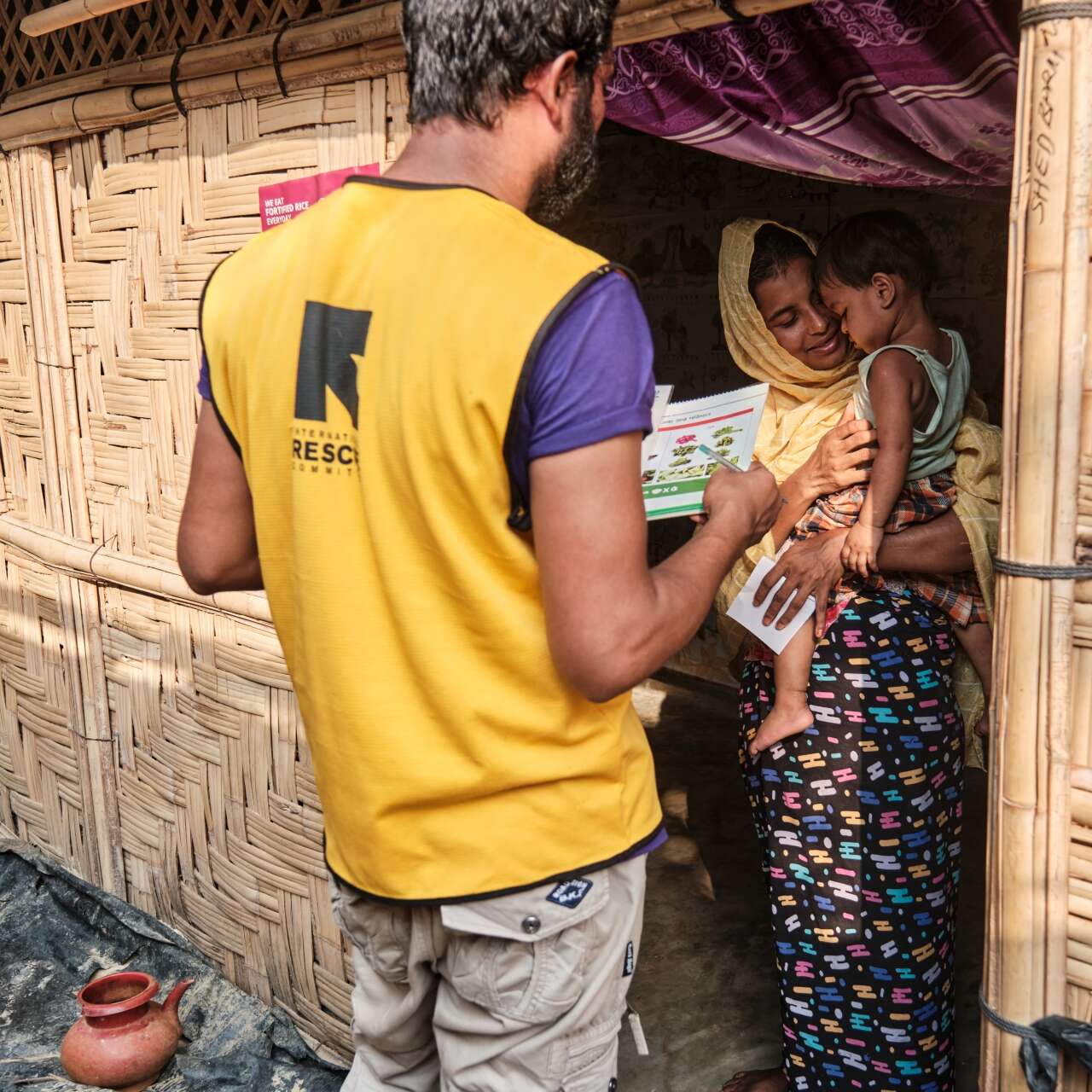
What Is the IRC? As seen on CBS Sunday Morning
The International Rescue Committee delivers lifesaving aid to people affected by conflict and disaster. Here’s how you can help.

The International Rescue Committee delivers lifesaving aid to people affected by conflict and disaster. Here’s how you can help.
On Sunday, April 20, CBS Sunday Morning’s Ted Koppel will report on the impact of United States humanitarian funding cuts on the International Rescue Committee (IRC), a global humanitarian organization working on the frontlines of the world’s most urgent crises. As millions of people face war, hunger and displacement, the IRC is delivering critical aid—and fighting to protect the future of humanitarian assistance.
If you’re wondering what the IRC is and how you can support our mission, here’s what you need to know.
The IRC helps people whose lives have been shattered by conflict, disaster and displacement. Founded in 1933 at the request of Albert Einstein, the IRC now works in crisis-affected countries around the world and in cities across the United States and Europe.
Our mission is simple but urgent: Help people survive, recover and rebuild their lives.
We provide lifesaving care in some of the most dangerous and complex environments in the world. This includes emergency medical services, treatment for malnourished children, clean water, safe education for displaced kids, support for women and girls, and economic recovery programs that help families get back on their feet.
Each year, we reach millions of people impacted by crisis. In 2023, this included:
The IRC works in crisis zones where communities are hardest hit by war, hunger, climate change and other disasters. Our teams are on the ground in crisis-affected countries like Afghanistan, Nigeria, Syria and Sudan delivering critical humanitarian services, often in remote and difficult to access areas where few others can reach. This includes the world’s most fragile states, many of which feature in our annual Emergency Watchlist as being most at risk of new or worsening humanitarian crises.
When disaster strikes, we act fast—deploying emergency teams within 72 hours. Our expertise land us on the frontlines of many of the worst crises in recent times—from flood-devastated regions of Pakistan and the earthquake in Myanmar to the wars in Gaza, Sudan and Ukraine.

The IRC helps refugees, asylum seekers and immigrants rebuild their lives through our offices across the United States and Europe. We provide housing, job placement, school enrollment, language classes and access to health care. We also offer legal assistance, financial coaching and small business support to help people achieve financial independence.
In 2023 alone, the IRC served more than 70,000 people through U.S. resettlement programs, with nearly 50,000 more receiving support through our asylum and crossborder services. Even as restrictive immigration policies take hold, we remain committed to helping newcomers integrate with dignity and stability.
The IRC has been named one Fast Company’s most innovative companies of 2025 for our bold, cost-effective solutions that save lives in today’s toughest humanitarian crises. From using artificial intelligence to expand access to education and real-time information, to predicting climate disasters and helping communities brace before they strike, our evidence-based innovations are reaching millions of people faster and more efficiently than ever before.
The IRC’s Airbel Impact Lab powers this work, designing, testing and scaling life-changing tools for communities affected by conflict and disaster. With 88 impact evaluations across 30 countries, we lead the humanitarian sector in research that drives smarter, more effective humanitarian aid.
As U.S. humanitarian aid funding is cut, millions of lives hang in the balance. But with your support, we can continue to provide lifesaving assistance to the communities that need it most.
Your donation empowers the IRC’s lifesaving work around the world. Sustained funding is essential to deliver emergency care to children suffering from malnutrition, help families rebuild their lives, provide essential health in the hardest-hit regions and so much more.
We consistently earn top marks by charity watchdog groups for our efficient use of donor contributions and the effectiveness of our work.
Support our mission—help crisis-affected people survive, recover and rebuild their lives.
Learn more about how you can help the IRC continue our mission.
Get connected: Follow our Instagram, LinkedIn, Facebook, Bluesky and X accounts.
Stay up to date with the latest from the IRC.